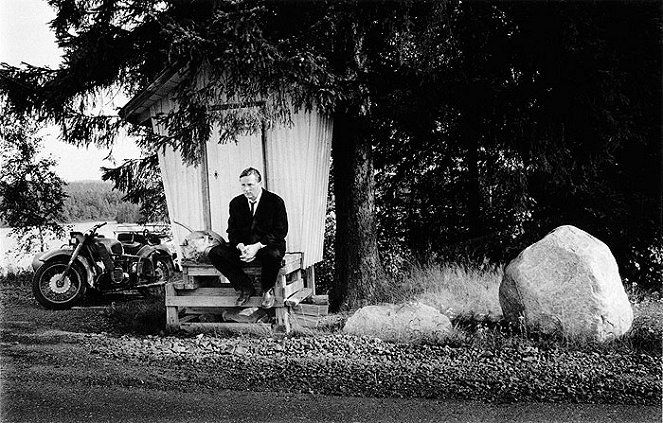Regie:
Aki KaurismäkiScenario:
Aki KaurismäkiCamera:
Timo SalminenMuziek:
Anssi TikanmäkiActeurs:
Sakari Kuosmanen, Kati Outinen, André Wilms, Markku Peltola, Elina Salo, Ona Kamu, Outi Mäenpää, Tuire Tuomisto, Tatiana Soloviova, Esko Nikkari (meer)Samenvattingen(1)
Juha is een Finse boer, die samen met zijn jonge vrouw Marja een gelukkig leven leidt. Op een zomerse dag strandt Shemeikka met wagenpech op hun land. Terwijl Juha probeert de auto te repareren, flirt Shemeikka met Marja. Hij houdt haar voor dat ze veel te goed en te mooi is voor zo'n armoedig leven op het land. De ontmoeting met deze charmante stadse man betekent een ommekeer teweeg in het leven van Marja. Ze bekijkt zichzelf en Juha met andere ogen en raakt ontevreden over haar leventje. (Cinemien)
(meer)Recensie (1)
The story is somewhere on the level of calendar moralities about seduced women, wicked bourgeoisie and innocent rural areas from the 19th century (Juhani Ahoa’s book is said to belong to Finnish neo-romanticism), it is all the more beautiful to observe in Aki’s work a kind of strange ruthlessness and toughness which culminates in a cruel final scene. It is a strange shift from pure optimistic naivety to severe pessimism and the alienation of the ending. Juha is beautiful for its symbolic legibility, the exaggeration and the special tension between the archaic ethos of rendering and a purely (still) current topic. By the way, perhaps the most of all the films, the Kaurismäki desexualization stands out here, as if men and women functioned mainly in the category of innocence vs. corruption. Juha thus fits perfectly into Aki's world, only deliberately externally externalizing some previously hidden elements. As in silent films, gestures are not made here for pragmatic reasons, but only for their aesthetic beauty. In this, the viewing experience with Juha is particularly liberating, because it frees us from the need to seek context and social justification for tragic events. It is a narrative for the joy of the narrative. Film for the joy of film. A bitter search for lost purity. Nothing more, nothing less.
()

